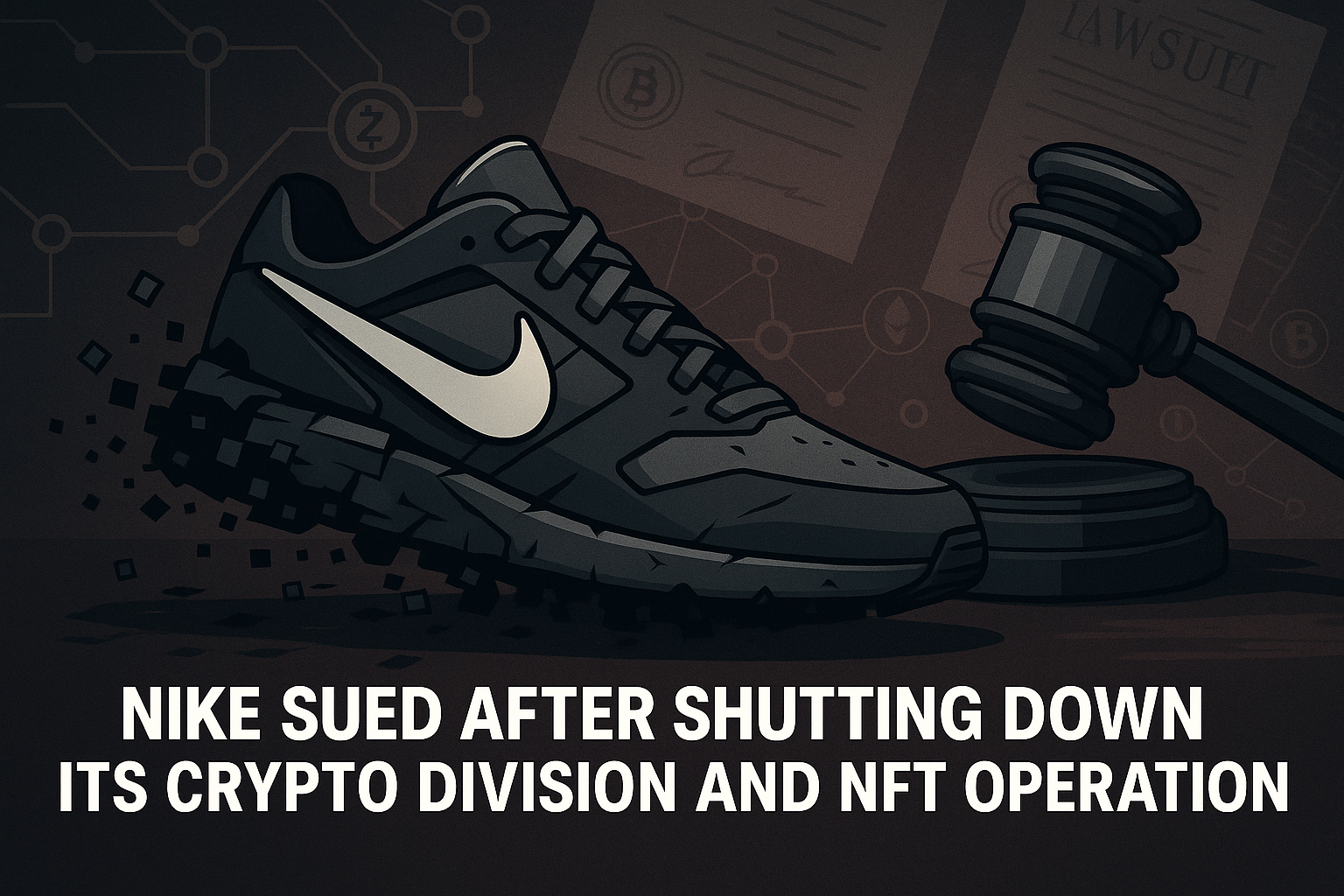In a striking legal development, global sportswear giant Nike is now facing a lawsuit filed by purchasers of its non-fungible tokens (NFTs) and other digital assets. The complaint, filed earlier this week, centers on the company’s sudden shutdown of its crypto venture, leaving investors blindsided and allegedly facing significant financial losses.
What Happened?
Nike, once seen as a major player in the Web3 and NFT space, had launched several high-profile NFT collections tied to virtual sneakers, digital wearables, and blockchain-based experiences. These initiatives were bolstered by Nike’s 2021 acquisition of RTFKT Studios, a startup known for its crypto-native collectibles.
However, the company recently announced it was winding down its crypto-related operations, offering no structured exit plan or compensation for those who invested in or actively traded its digital assets.
Now, a group of plaintiffs—including individual NFT holders and institutional Web3 investors—allege that Nike:
-
Failed to provide adequate disclosure about its exit
-
Misled buyers regarding long-term value
-
Neglected to maintain support for NFT-linked assets after the closure
Legal Implications
According to legal filings, the plaintiffs are seeking compensation for losses incurred from NFT devaluation and trading disruptions. Some claim that their digital assets have lost over 80% of their initial value following Nike’s departure.
This case could set a major precedent for corporate accountability in the NFT space, especially when mainstream brands enter—and abruptly exit—digital asset ecosystems.
Legal experts say the outcome may also influence:
-
How NFT projects are governed
-
What rights digital asset buyers hold
-
The legal status of NFTs as investment products or collectibles
Web3 Community Reacts
The shutdown has sparked widespread debate among crypto natives, with many expressing frustration that major corporations are entering the space without long-term commitment or understanding of decentralized culture.
“NFTs aren’t just marketing tools—they’re investments, community assets, and often representations of ownership,” said one collector in an X post. “Nike’s exit undermines trust in mainstream adoption.”
This incident follows a broader trend of corporate reevaluation of Web3 initiatives, with several major brands scaling back due to market volatility and regulatory uncertainty.
The Bigger Picture
As the NFT market matures, consumer protection, asset permanence, and legal clarity are becoming urgent priorities. This case may serve as a wake-up call for companies diving into digital assets without fully considering their responsibilities.
Nike’s legal battle is more than just a brand blunder—it’s a test case for how real-world brands navigate the decentralized economy.




